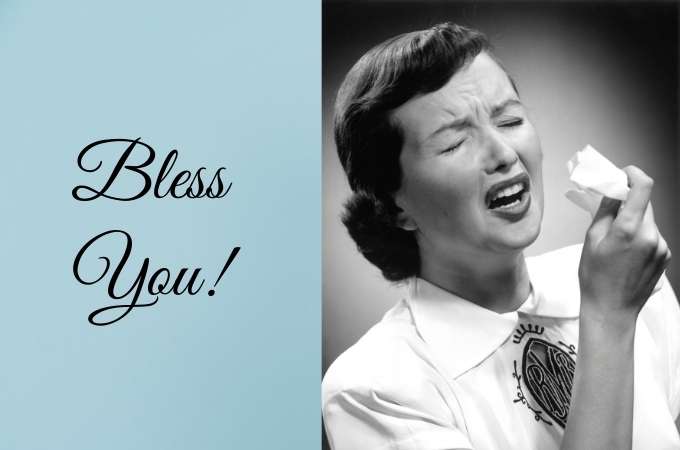
The Historical Origins of some common Rules of Etiquette
Bless you! A command from the pope
Established rules of etiquette are more often than not simply taken for granted within society. And despite what some of the more radical skeptics may claim, this is not necessarily a bad thing. The sheer acceptance of the rules of etiquette serves a very important function in society in terms of not only maintaining order, but helping smooth out human interaction. Nonetheless, ignorance is no virtue in itself, so it never hurts to dig a little deeper into the historical origins and the original meaning of some of the established rules of etiquette in our society. Let’s take a look at three of the most common and universally established rules of etiquette as examples.
We commonly say “bless you” after someone sneezes. This practice dates back to the 6th century AD, when pope Gregory commanded that anyone who sneezed be immediately blessed as a prayer of protection against the possible contraction of a plague. Because of being established as a rule of etiquette, this common prayer is perhaps the longest surviving Christian prayer even among some of the most secular societies.
Your mom probably taught you to keep your elbows off the table. And while she may have been ignorant regarding the true reasons behind the rule, this isn’t merely some arbitrary guideline that your great-grandmother made up. This rule dates back to the most ancient civilizations. Primarily, the rule was aimed at establishing some borders between dinner attendees and was used to prevent conflict and eventually fighting at large gatherings. However, the reason this ancient rule stuck was primarily because of its practicality in terms of disciplining dinner guests from doing anything that inconveniences others and avoiding unpleasantness by virtue of overfamiliarity.
It is still common practice in many parts of the world that the parents of the bride – not of the bridegroom – are expected to foot the bill for the wedding ceremony. This practice dates back to ancient dowry traditions, where paying for the ceremony was considered part the inheritance a daughter could claim upon her marriage. In other words, it was expected as a gift from parents to their daughter for the accomplishment of catching a husband that they – presumably – approved of.
While some of the customs and also the rationale behind these common rules of etiquette may certainly have become outdated, the rules themselves still serve a very important function in our society. Saying “bless you”, for example, is undoubtedly a gesture of affection, just like keeping your elbows off the table is a sign of respect to your fellow dinner guests. And while money of course cannot ever buy love, paying for the wedding as a gift to your daughter on the most important day of her life is one of the most beautiful gestures of kindness parents can ever make.
These examples exemplify the beauty, order and affection that etiquette brings to our world.

Paul russell
Paul Russell is co-founder of Luxury Academy London, a multi-national training company with offices in London, Mumbai and Visakhapatnam. Luxury Academy London specialise exclusively in the luxury industry and deliver training in leadership, communication and business etiquette training for companies and private clients across the globe.
Prior to founding Luxury Academy London, Paul worked in senior leadership roles within luxury hospitality. A dynamic trainer and seminar leader, Paul has designed and taught courses, workshops and seminars worldwide on a wide variety of soft skills.